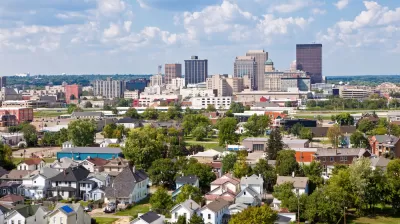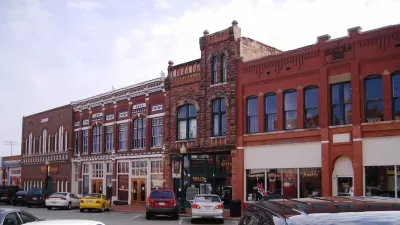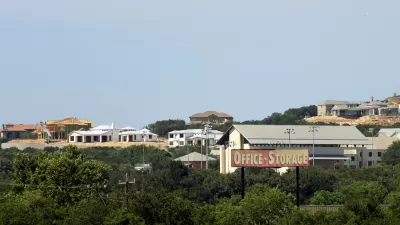Developers are frequently cast as a kind of monolithic bad guy in the politics of development, but developers are cut from different cloths, each with distinct interests and motivations.

Daniel Herriges shares a schema that can help people understand the world of real estate development—namely, that not all developers are alike.
There are three distinct varieties of developer, according to Herriges, each operating on a different business model. "They build different types of buildings, in different places. They use different sources of financing. Local rules and regulations affect these different groups very differently, and—importantly—their interests often do not align," writes Herriges.
So what are these three kinds of developers? Herriges lists residential developers types as follows: 1) big national homebuilders, like Lennar, Pulte, and D.R. Horton; 2) the "big urban box" developers that are smaller than the national builders but still likely to have a major influence over politics at the local and regional level; and then there are the 3) incremental infill developers. Herriges notes that there are also three types of commercial developers, but keeps the focus of this article on residential developers.
To further elucidate the differences between these three kinds of developers, Herriges digs into the business models of each type, identifying fundamental differences between each of them. But most helpfully, Herriges also devotes significant attention to the question of why these distinctions matter—the answer is immediately apparent in the lack of alignment in the interests of each of these three kinds of developers.
FULL STORY: There Are 3 Different Kinds of Developers

Maui's Vacation Rental Debate Turns Ugly
Verbal attacks, misinformation campaigns and fistfights plague a high-stakes debate to convert thousands of vacation rentals into long-term housing.

Planetizen Federal Action Tracker
A weekly monitor of how Trump’s orders and actions are impacting planners and planning in America.

Chicago’s Ghost Rails
Just beneath the surface of the modern city lie the remnants of its expansive early 20th-century streetcar system.

Bend, Oregon Zoning Reforms Prioritize Small-Scale Housing
The city altered its zoning code to allow multi-family housing and eliminated parking mandates citywide.

Amtrak Cutting Jobs, Funding to High-Speed Rail
The agency plans to cut 10 percent of its workforce and has confirmed it will not fund new high-speed rail projects.

LA Denies Basic Services to Unhoused Residents
The city has repeatedly failed to respond to requests for trash pickup at encampment sites, and eliminated a program that provided mobile showers and toilets.
Urban Design for Planners 1: Software Tools
This six-course series explores essential urban design concepts using open source software and equips planners with the tools they need to participate fully in the urban design process.
Planning for Universal Design
Learn the tools for implementing Universal Design in planning regulations.
planning NEXT
Appalachian Highlands Housing Partners
Mpact (founded as Rail~Volution)
City of Camden Redevelopment Agency
City of Astoria
City of Portland
City of Laramie




























